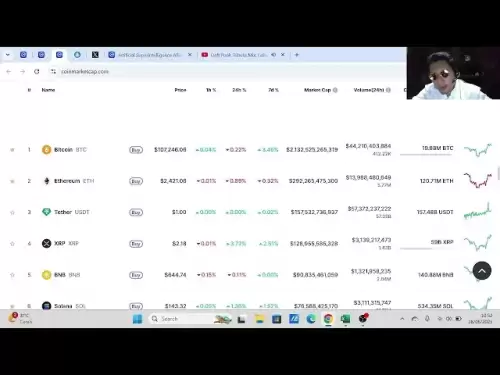-
 Bitcoin
Bitcoin $107,352.1067
0.28% -
 Ethereum
Ethereum $2,429.3531
-0.90% -
 Tether USDt
Tether USDt $1.0001
-0.02% -
 XRP
XRP $2.1894
4.62% -
 BNB
BNB $646.7968
0.36% -
 Solana
Solana $147.4290
4.03% -
 USDC
USDC $0.9998
-0.02% -
 TRON
TRON $0.2756
1.52% -
 Dogecoin
Dogecoin $0.1630
1.14% -
 Cardano
Cardano $0.5612
1.18% -
 Hyperliquid
Hyperliquid $37.0580
-0.05% -
 Bitcoin Cash
Bitcoin Cash $496.9410
-0.09% -
 Sui
Sui $2.7318
3.19% -
 Chainlink
Chainlink $13.1503
0.58% -
 UNUS SED LEO
UNUS SED LEO $9.0766
0.55% -
 Avalanche
Avalanche $17.7220
1.46% -
 Stellar
Stellar $0.2380
1.52% -
 Toncoin
Toncoin $2.8439
0.38% -
 Shiba Inu
Shiba Inu $0.0...01143
1.84% -
 Litecoin
Litecoin $85.8053
1.47% -
 Hedera
Hedera $0.1483
2.70% -
 Monero
Monero $314.3240
2.12% -
 Bitget Token
Bitget Token $4.6725
0.77% -
 Dai
Dai $1.0000
0.00% -
 Polkadot
Polkadot $3.3555
1.28% -
 Ethena USDe
Ethena USDe $1.0001
0.02% -
 Uniswap
Uniswap $7.0890
2.64% -
 Pi
Pi $0.5355
-3.40% -
 Pepe
Pepe $0.0...09393
1.06% -
 Aave
Aave $256.8136
-1.90%
CoinEx contract arbitrage strategy
CoinEx's low fees and vast trading pairs make it ideal for contract arbitrage strategies, involving identifying and capitalizing on price differences between cryptocurrency exchanges.
Nov 25, 2024 at 05:36 pm
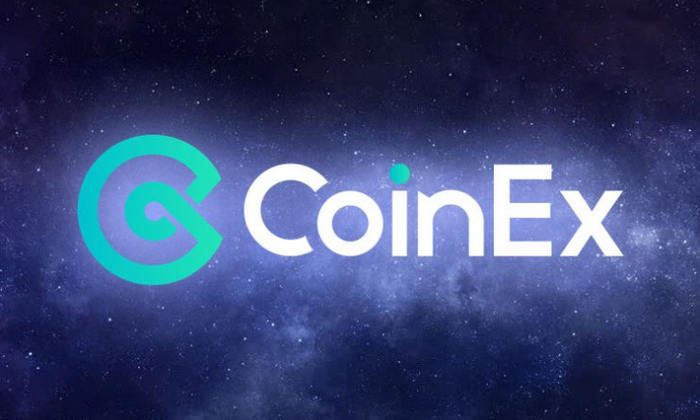
CoinEx Contract Arbitrage Strategy
Contract arbitrage is a trading strategy that exploits price differences between two or more markets for the same asset. In the context of cryptocurrency, contract arbitrage involves identifying and capitalizing on price disparities between different cryptocurrency exchanges. CoinEx, a cryptocurrency exchange known for its low trading fees and a wide selection of trading pairs, offers a favorable environment for contract arbitrage strategies.
Steps Involved in CoinEx Contract Arbitrage Strategy
1. Identifying Arbitrage Opportunities:
- Monitor multiple cryptocurrency exchanges simultaneously, comparing the prices of the same contract on different platforms.
- Look for significant price discrepancies between exchanges, indicating potential arbitrage opportunities.
- Use market data aggregators or trading bots to automate the process of identifying arbitrage opportunities.
2. Executing the Arbitrage:
- Once an arbitrage opportunity is identified, place a buy order on the exchange with the lower price, while simultaneously placing a sell order on the exchange with the higher price.
- Ensure that the spreads are wide enough to cover trading fees and slippage, making the arbitrage profitable.
- Execute the trades quickly to minimize the risk of the price gap closing before the arbitrage is completed.
3. Risk Management:
- Set stop-loss orders on both the buy and sell positions to limit potential losses in case the market moves against the arbitrage position.
- Monitor the arbitrage position closely, adjusting the stop-loss orders as needed to protect profits.
- Consider the volatility of the underlying asset and the fees associated with trading on different exchanges to assess the overall risk of the arbitrage.
4. Liquidity Considerations:
- Ensure that there is sufficient liquidity on both exchanges to execute the arbitrage without slippage or excessive fees.
- Larger arbitrage opportunities may require splitting the trades into smaller portions to avoid impacting the market.
- Monitor the order books on both exchanges to anticipate any sudden changes in liquidity or price dynamics.
5. Trading Tools and Techniques:
- Use trading bots to automate the arbitrage process, enabling faster execution and reducing the risk of human error.
- Employ technical indicators, such as moving averages or Bollinger Bands, to identify potential price trends and support and resistance levels relevant to the arbitrage.
- Utilize limit orders to control the execution price of the trades and minimize slippage.
6. Legal and Regulatory Considerations:
- Arbitrage strategies may be subject to specific legal and regulatory requirements in different jurisdictions.
- Ensure compliance with local laws and seek legal advice if necessary.
- Consider the potential tax implications of arbitrage trading and consult a tax professional for guidance.
7. Continuous Monitoring and Adjustment:
- Monitor the arbitrage position throughout its duration, adjusting the stop-loss orders and trading parameters as needed to optimize profitability and manage risk.
- Be prepared to exit the arbitrage if market conditions change or the price discrepancy diminishes.
- Adapt the arbitrage strategy based on changing market dynamics and technological advancements in the cryptocurrency industry.
Disclaimer:info@kdj.com
The information provided is not trading advice. kdj.com does not assume any responsibility for any investments made based on the information provided in this article. Cryptocurrencies are highly volatile and it is highly recommended that you invest with caution after thorough research!
If you believe that the content used on this website infringes your copyright, please contact us immediately (info@kdj.com) and we will delete it promptly.
- Altcoins, Explosive Gains, and Cryptocurrency: What's the Hype?
- 2025-06-28 21:12:19
- SEI Mirroring Solana: Price Spikes and the Next Big Crypto?
- 2025-06-28 20:52:13
- Pi Network's Pi2Day: Token Tank and Disappointing Rollout?
- 2025-06-28 21:27:13
- PENGU Price Surges: Are Whales Targeting $0.0149?
- 2025-06-28 20:30:12
- Bitcoin Adoption, Portfolio Allocation, and Financial Advisors: A New Era
- 2025-06-28 21:27:13
- Kaanch vs. XRP: Spotting the Next Big Thing & Entry Price Opportunities
- 2025-06-28 21:50:12
Related knowledge
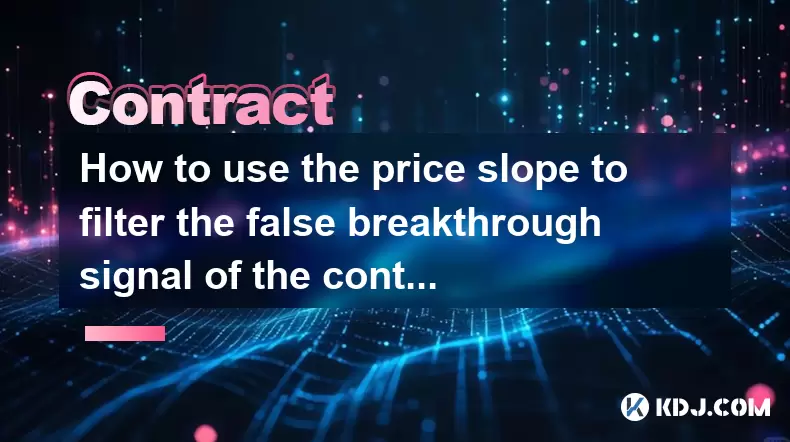
How to use the price slope to filter the false breakthrough signal of the contract?
Jun 20,2025 at 06:56pm
Understanding the Concept of Price Slope in Contract TradingIn contract trading, especially within cryptocurrency derivatives markets, price slope refers to the rate at which the price changes over a specific time period. It helps traders assess the strength and sustainability of a trend. A steep slope may indicate strong momentum, while a shallow slope...
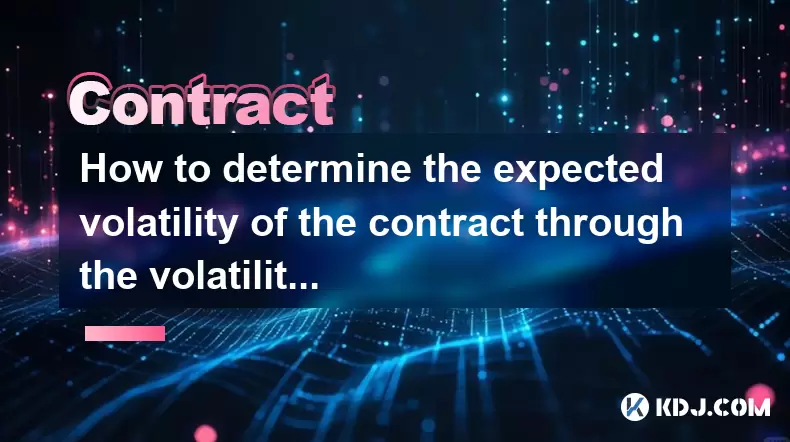
How to determine the expected volatility of the contract through the volatility cone?
Jun 19,2025 at 12:28pm
Understanding the Basics of Volatility in Cryptocurrency ContractsIn the realm of cryptocurrency trading, volatility is a key metric that traders use to assess potential risk and reward. When dealing with futures contracts, understanding how volatile an asset might become over time is crucial for position sizing, risk management, and strategy developmen...
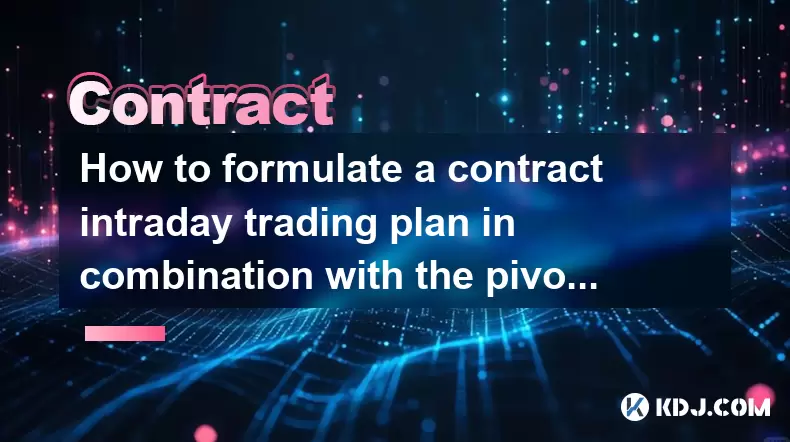
How to formulate a contract intraday trading plan in combination with the pivot point system?
Jun 21,2025 at 03:42pm
Understanding the Basics of Pivot Points in Cryptocurrency TradingPivot points are technical analysis tools used by traders to identify potential support and resistance levels. These levels are calculated using the previous day's high, low, and closing prices. In the context of cryptocurrency trading, where markets operate 24/7, pivot points help trader...
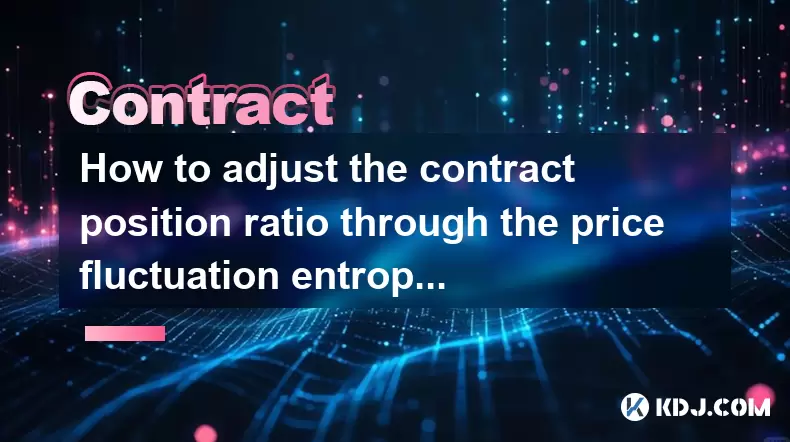
How to adjust the contract position ratio through the price fluctuation entropy?
Jun 22,2025 at 11:42am
Understanding Price Fluctuation Entropy in Cryptocurrency ContractsIn the world of cryptocurrency futures trading, price fluctuation entropy is a relatively new concept used to measure market volatility and uncertainty. It derives from information theory, where entropy refers to the degree of randomness or unpredictability in a system. In crypto contrac...
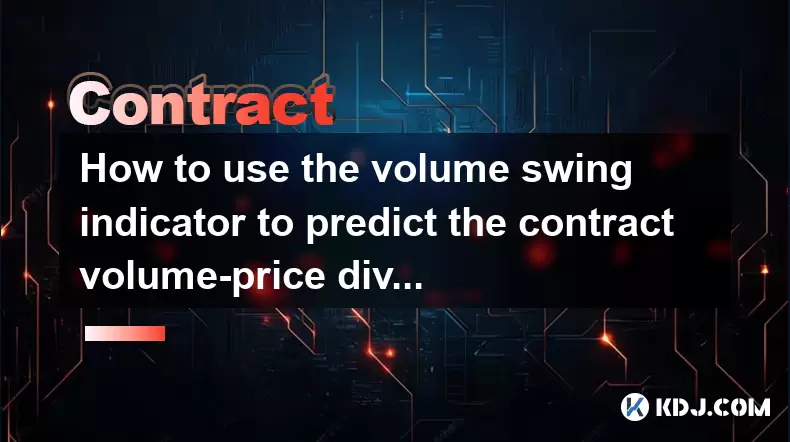
How to use the volume swing indicator to predict the contract volume-price divergence?
Jun 18,2025 at 11:42pm
Understanding the Volume Swing IndicatorThe volume swing indicator is a technical analysis tool used primarily in cryptocurrency trading to evaluate changes in volume over time. Unlike price-based indicators, this metric focuses solely on trading volume, which can provide early signals about potential market reversals or continuations. The key idea behi...
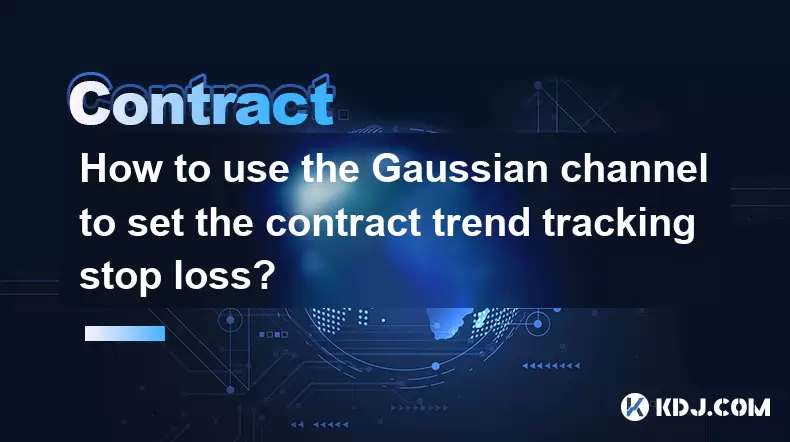
How to use the Gaussian channel to set the contract trend tracking stop loss?
Jun 18,2025 at 09:21pm
Understanding the Gaussian Channel in Cryptocurrency TradingThe Gaussian channel is a technical indicator used primarily in financial markets, including cryptocurrency trading, to identify trends and potential reversal points. It is based on statistical principles derived from the normal distribution, commonly known as the Gaussian distribution or bell ...

How to use the price slope to filter the false breakthrough signal of the contract?
Jun 20,2025 at 06:56pm
Understanding the Concept of Price Slope in Contract TradingIn contract trading, especially within cryptocurrency derivatives markets, price slope refers to the rate at which the price changes over a specific time period. It helps traders assess the strength and sustainability of a trend. A steep slope may indicate strong momentum, while a shallow slope...

How to determine the expected volatility of the contract through the volatility cone?
Jun 19,2025 at 12:28pm
Understanding the Basics of Volatility in Cryptocurrency ContractsIn the realm of cryptocurrency trading, volatility is a key metric that traders use to assess potential risk and reward. When dealing with futures contracts, understanding how volatile an asset might become over time is crucial for position sizing, risk management, and strategy developmen...

How to formulate a contract intraday trading plan in combination with the pivot point system?
Jun 21,2025 at 03:42pm
Understanding the Basics of Pivot Points in Cryptocurrency TradingPivot points are technical analysis tools used by traders to identify potential support and resistance levels. These levels are calculated using the previous day's high, low, and closing prices. In the context of cryptocurrency trading, where markets operate 24/7, pivot points help trader...

How to adjust the contract position ratio through the price fluctuation entropy?
Jun 22,2025 at 11:42am
Understanding Price Fluctuation Entropy in Cryptocurrency ContractsIn the world of cryptocurrency futures trading, price fluctuation entropy is a relatively new concept used to measure market volatility and uncertainty. It derives from information theory, where entropy refers to the degree of randomness or unpredictability in a system. In crypto contrac...

How to use the volume swing indicator to predict the contract volume-price divergence?
Jun 18,2025 at 11:42pm
Understanding the Volume Swing IndicatorThe volume swing indicator is a technical analysis tool used primarily in cryptocurrency trading to evaluate changes in volume over time. Unlike price-based indicators, this metric focuses solely on trading volume, which can provide early signals about potential market reversals or continuations. The key idea behi...

How to use the Gaussian channel to set the contract trend tracking stop loss?
Jun 18,2025 at 09:21pm
Understanding the Gaussian Channel in Cryptocurrency TradingThe Gaussian channel is a technical indicator used primarily in financial markets, including cryptocurrency trading, to identify trends and potential reversal points. It is based on statistical principles derived from the normal distribution, commonly known as the Gaussian distribution or bell ...
See all articles























